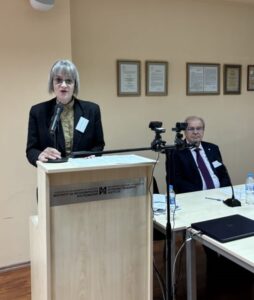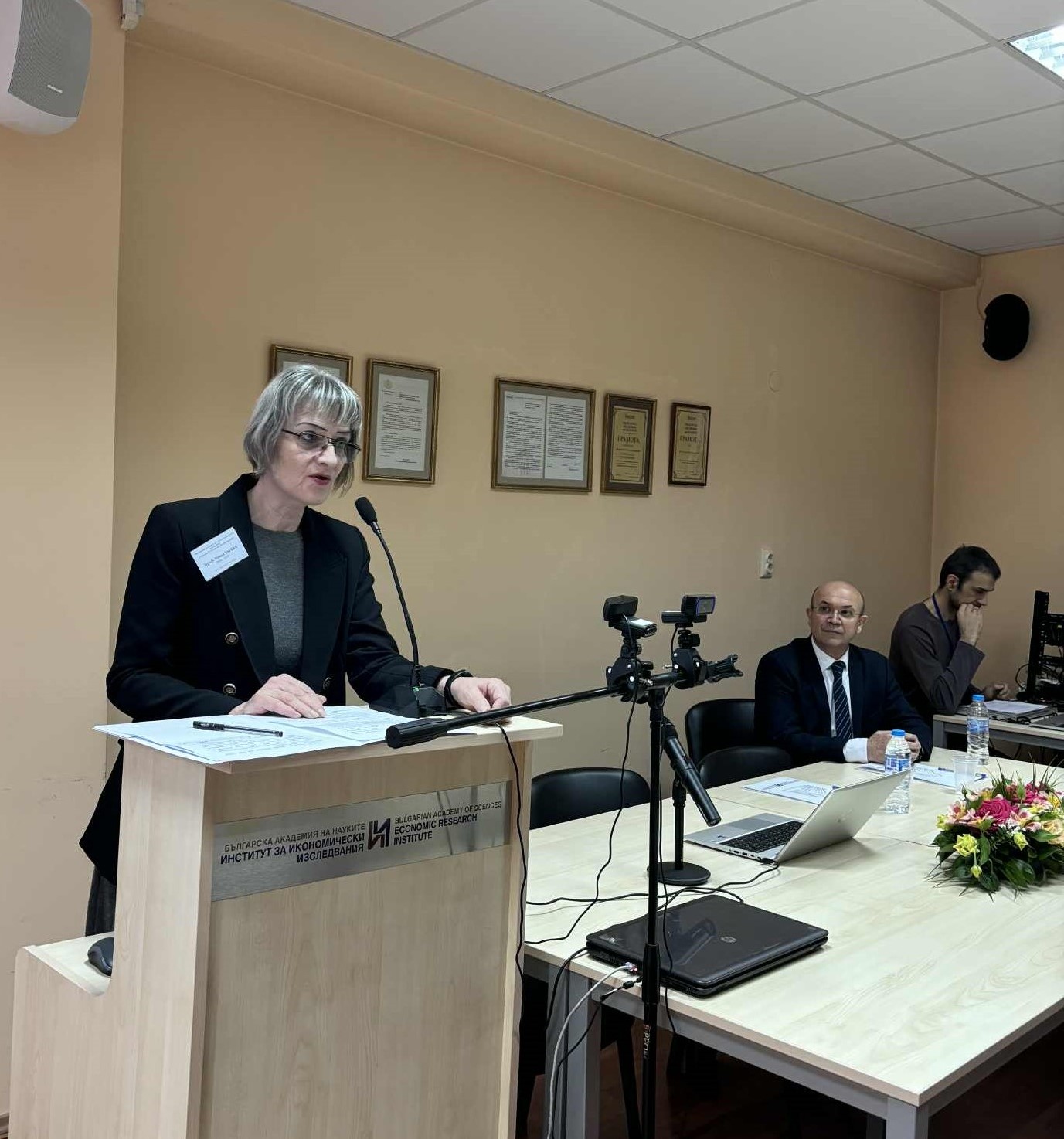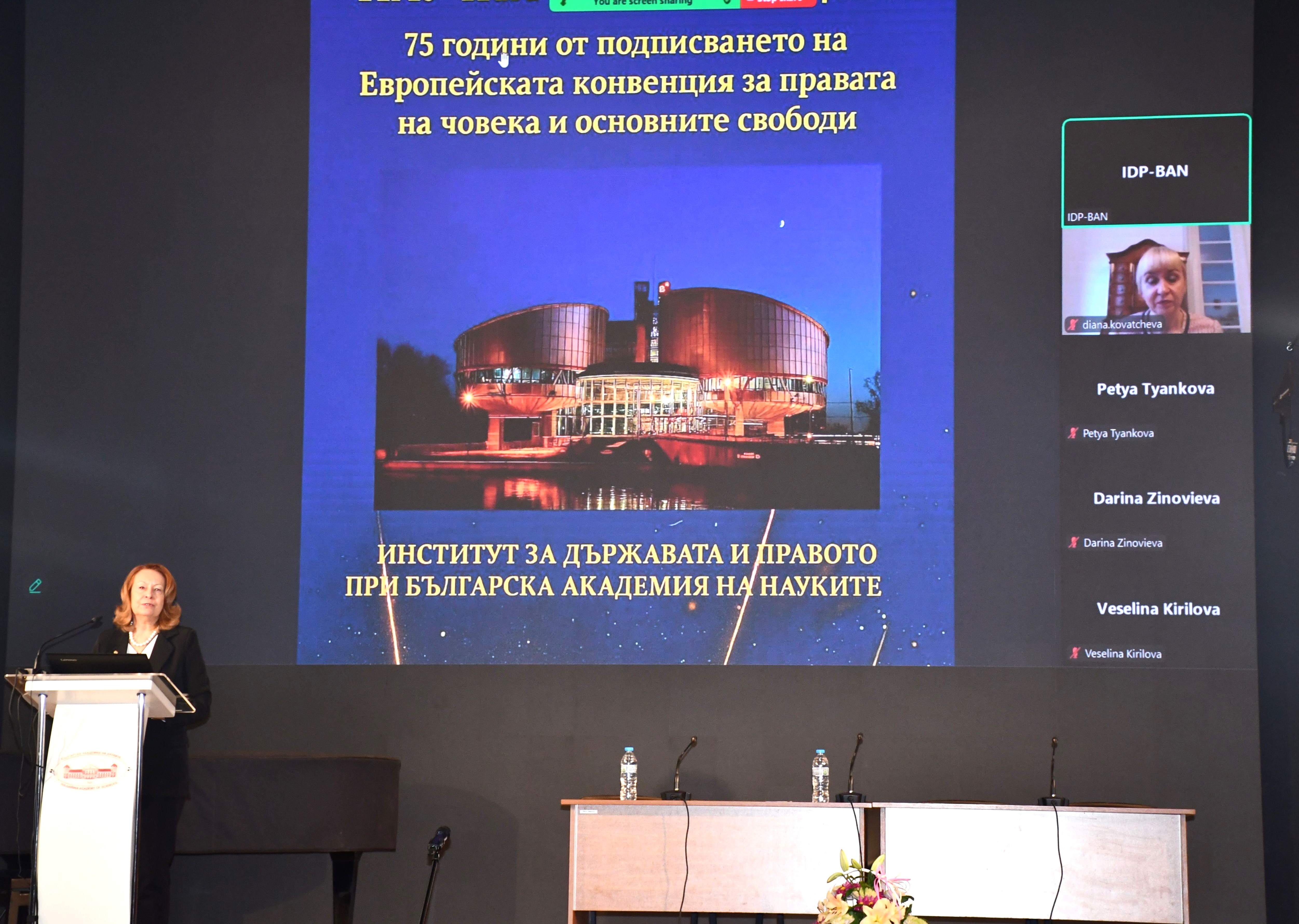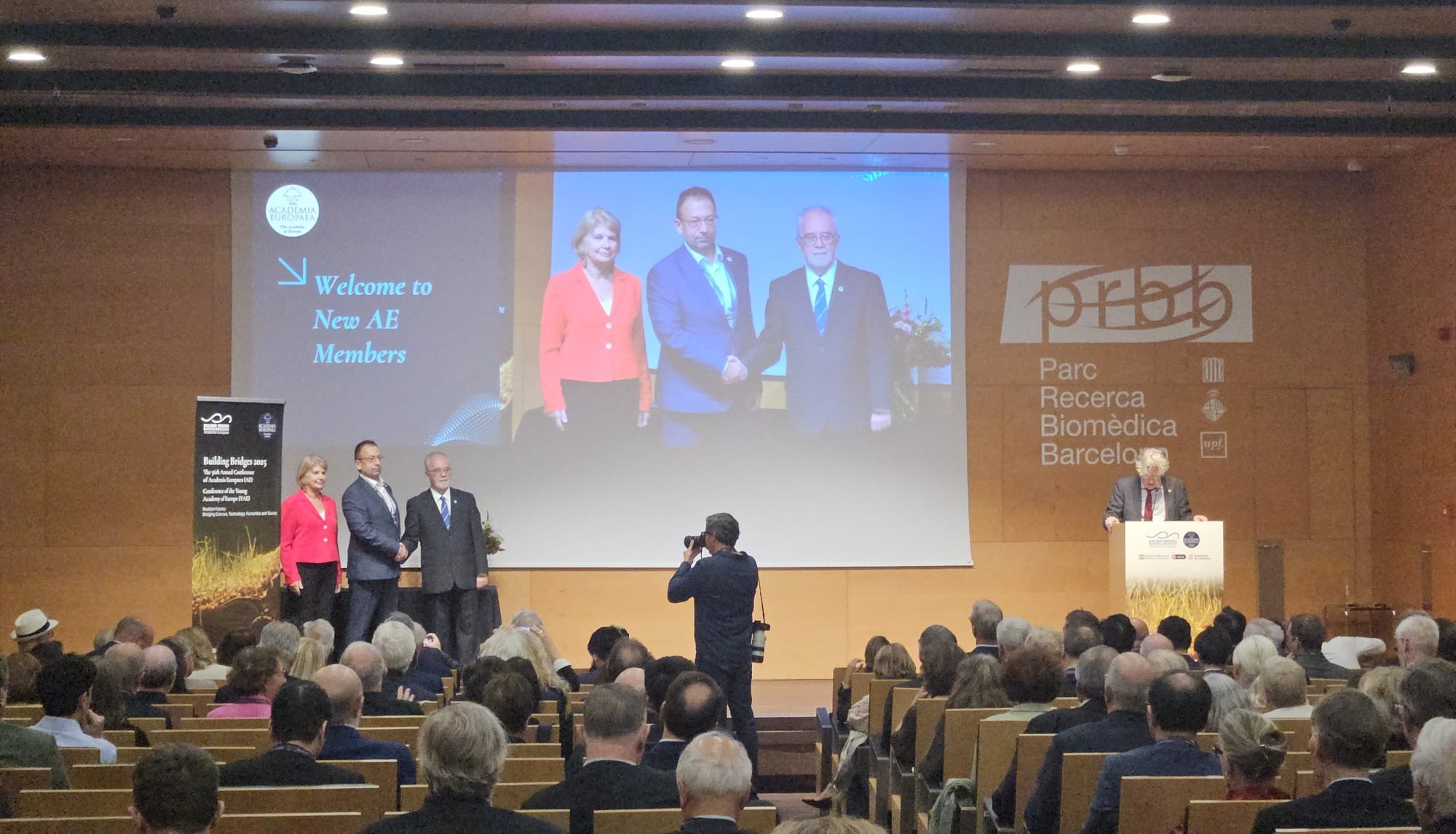In the European Union, there is convergence which arises from faster economic growth in low-income countries. For Bulgaria this growth is not enough – it became clear at the opening of the jubilee scientific conference on “Economic Development and Policies: Realities and Prospects. European Integration, Convergence and Cohesion”.
The forum is organized on the occasion of the 75th anniversary of the Economic Research Institute at BAS (ERI) and is attended by experts from 3 research institutes, lecturers and PhD students from 8 higher education institutions in the country, as well as scientists from Romania, Poland, Georgia, Lithuania, Germany, Great Britain and France. It was open by Prof. Dr. Irena Zareva – Director of ERI. In her welcoming speech, she said that the scientists had been paying attention to the issues of Bulgaria’s integration into the EU ever since the pre-accession period, and these issues are among the priorities of the research activities of the scientists of the ERI in view of their great importance in national and European terms.
Overcoming the problems facing European integration requires pooling the efforts and experience of the administration, the academic sphere and the business to find adequate solutions for the acceleration and successful implementation of the processes of integration, convergence and cohesion, Prof. Zareva also said.
The discussions in the scientific conference are organized in 5 panels and the plenary paper “Concepts of convergence, cohesion and integration and the realities of the economic development of the European Union” was delivered by Prof. Rositsa Rangelova, DSc, from ERI. Presenting the scientific theories and approaches for the study of the three processes in the focus of the conference, she pointed out that the relationship between convergence and macroeconomic imbalances was not unambiguous and did not necessarily lead to an increase in real convergence.
In her words, European policy prioritises club convergence, especially within the euro area. It cannot be argued that the adoption of the euro favours convergence trends. Divergence processes between euro area countries are clearly emerging, pointed out prof. Rangelova.
Regarding economic integration, she said that the benefits of economic integration were greater scale, internal efficiency and stability for the EU economy as a whole and for individual countries within it. This offered opportunities for stability, higher economic growth and more employment, Prof. Rangelova said.







